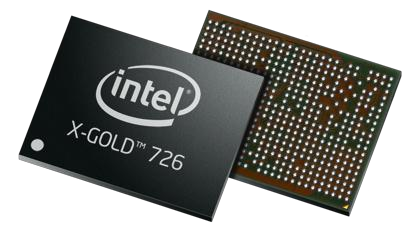Intel Makes Play For LTE Modem Market With XMM 7260, Now Commercially Available
Intel announced the commercial availability of its discrete LTE-Advanced modem, the XMM 7260, which it previewed earlier this year at MWC as one of the first global LTE-Advanced modems. The modem will soon ship inside the new Samsung Galaxy Alpha smartphone. Intel has also managed to have its five-mode XMM 7262 LTE FDD/TDD chipset certified on China Mobile, China’s largest carrier, which gives the company access to the largest mobile market in the world.
Intel got into the 3G/LTE game when it acquired the wireless division of Infineon back in 2011. In 2013 it also bought Fujitsu Wireless, so Intel’s intentions about the LTE market are rather clear – the company wants to become a strong player in what it believes will be a high-growth market. Intel is now making LTE modems for its own x86 Atom chips, but also for other ARM processors, which are currently in the vast majority of mobile devices.
Qualcomm, the leader in mobile processors and LTE modems, has grown its business by combining the two type of chips to improve cost, cut down on time to market for OEMs (easier to launch in products) and also improve costs for OEMs by bundling them together.
This has been a strong and successful strategy for Qualcomm, but at the same time it has left a significant void in the market for discrete 3G/LTE modems for those OEMs that don’t want to use Qualcomm’s chips. This is the type of customer Intel hopes to win in the near future, with the goal of eventually becoming a close second to Qualcomm in LTE modem market share.
The new XMM 726x modem platform supports carrier aggregation of up to 40 MHz combined bandwidth on a single RF transceiver. Other features include:
- CAT 6 (300 Mbps theoretical peak downlink speeds)
- Voice over LTE (VoLTE)
- Seamless LTE FDD/TDD/TD-SCDMA/WCMDA/2G switching
- Flexible interconnect to application processors
- Support for 22 bands simultaneously in a single SKU
Intel expects to launch modems based on the XMM 726x platform in other regions such as Australia, China, Europe, Latin America, North America and South Korea by the end of this year.
Follow us @tomshardware, on Facebook and on Google+.
Get Tom's Hardware's best news and in-depth reviews, straight to your inbox.
Lucian Armasu is a Contributing Writer for Tom's Hardware US. He covers software news and the issues surrounding privacy and security.
-
InvalidError If Intel got their chip certified by a Chinese carrier, does that imply Intel plans to price them down to China-friendly prices? That sounds very un-Intel-like.Reply
Intel's best bet if they want to increase their market share at relatively low cost would probably be to license their radio as a hard-macro so SoC designers can integrate it in their chips. -
amk-aka-Phantom ReplyThe modem will soon ship inside the new Samsung Galaxy Alpha smartphone.
Since Galaxy Alpha is already available for purchase in some markets, does this mean that the new Intel modem is already being used in them or will it only show up in a later revision of the phone? -
rhorjus Ummm... Pretty sure Qualcomm still has the Gobi discrete modem. And its on the bleeding edge of modem technology. So Intel has many battles to win still.Reply -
InvalidError Reply
Commercial availability simply means that now any company who wants it can start ordering. It is not unusual for the launches of the first device integrating another company's new device(s) to coincide within a few days. This is what they call "launch vehicles" - if you want to convince other companies to buy your chips, you make sure there is at least one practical demonstration of what you want it to get used for and what it can do at launch.14192736 said:Since Galaxy Alpha is already available for purchase in some markets, does this mean that the new Intel modem is already being used in them or will it only show up in a later revision of the phone?
This would not be very different from how stores usually have Intel's newest CPUs in stock for launch-day... the CPUs available on launch-day often have date codes many months older than launch since Intel had to start producing chips months ahead of time for motherboard manufacturers to have a chance to test their boards against launch devices before launch.
Imagine how much fun Intel's CPU launches would be if no motherboard manufacturer or system integrator had seen the CPU before launch-day...

